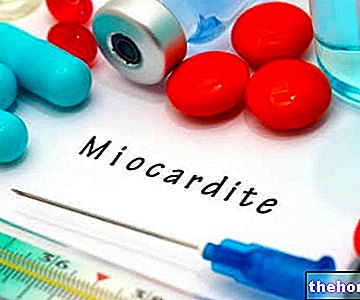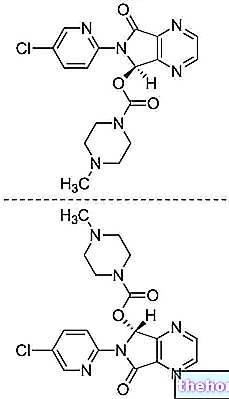Definition
Measles is an acute, infectious and highly contagious disease caused by a virus: infection, just like chicken pox, mumps and rubella, is typical of childhood, although in some cases it can also affect adults.
Causes
The etiological factor responsible for measles is an RNA virus belonging to the Paramyxovirus family and to the Morbillivirus genus, transmitted essentially through the respiratory tract.
Symptoms
There are three phases:
- Incubation phase: 10-12 days: anorexia, gastrointestinal disorders, headache, general malaise
- Pre-exanthemic phase, lasting only 3 days: conjunctivitis, high fever, lacrimation, malaise, cold, dry cough
- Exanthemic phase: appearance of the rash first in the face, then throughout the body (maculo-papular rash), fever and cough. The rash, after 4 days, gives way to skin peeling.
Information on Measles - Measles Treatment Drugs is not intended to replace the direct relationship between health professional and patient. Always consult your doctor and / or specialist before taking Measles - Measles Treatment Drugs.
Medicines
As for the mumps, also for the treatment of measles there are no specific drugs, but only therapeutic aids that help the patient to better overcome the disease. As we will see, vaccination has proved very useful in most patients.
The following are the classes of drugs most used in measles therapy, and some examples of pharmacological specialties; it is up to the doctor to choose the most suitable active ingredient and dosage for the patient, based on the severity of the disease, the state of health of the patient and his response to treatment:
- Paracetamol or acetaminophen (eg tachipirina): very useful therapeutic aid to lower high fever, a typical symptom that accompanies measles. The drug is administered at a dosage of 325-650 mg per day every 4-6 hours; alternatively, take 1 gram every 6-8 hours. It is also possible to take paracetamol intravenously: 1 gram every 6 hours or 650 mg every 4 hours for adults and adolescents who weigh more than 50 kilos: if the patient weighs less than 50 kilos, administer 15 mg / kg every 6 hours or 12 , 5 mg / kg every 4 hours.
- Vitamin A (eg. Adisterol, Evitex, Vitalipid): some doctors recommend vitamin A supplementation especially for hospitalized children aged between 6 months and 2 years. Clinical evidence shows that many children with measles have a marked vitamin A deficiency. The dosage should be determined by the doctor.
- Ribavirin (eg. Ribavirin Teva, Ribavirin Three Rivers, Rebetol, Ribavirin BioPartners): is an antiviral drug administered to some patients whose immune system is particularly weakened or in case of serious complications from measles (eg. Encephalitis, otitis media, etc.) . However, the reported benefit of this measles drug has not yet been fully demonstrated.
- Antibiotics, such as ampicillin (eg Ampilux, Amplital, Unasyn) and cephalosporins in general (eg Cefuroxime, Cefadroxil, etc.), are indicated only in case of bacterial complications. The dosage should be indicated by the doctor.
- Expectorant and antitussive agents: useful for clearing the respiratory tract, removing mucus and exudate deposited in the bronchi and trachea. In this case, phytotherapy is a valid help: ivy, licorice, horehound, white nettle (in the form of syrups or herbal teas).
Measles vaccination
The vaccine prophylaxis has proved to be particularly useful for preventing measles: however, it should be noted that the vaccine does not give an absolute guarantee on immunity from the disease. In general, the measles vaccine is available in combination with that for immunization. from rubella and mumps.
For example: M-M-RVAXPRO (Morbid, mumps and anti-rubella vaccine, live attenuated) and ProQuad.
What changes from 2017
With the decree law on vaccination prevention for minors from zero to 16 years, approved on 28/07/2017, vaccination against measles has become mandatory.
This specific vaccination can be carried out with a single injection together with 3 other vaccination covers (the so-called quadrivalent MPRV vaccination, which includes vaccines: anti-measles, anti-rubella, anti-mumps, anti-varicella).
- The measles vaccination obligation is in force, in the context of the 10 compulsory vaccinations, for those born after 2017. Even those born after 2001 are subject to the measles vaccination obligation.
- Individuals immunized as a result of the natural disease are exempt from the vaccination obligation, therefore children who have already contracted measles will not have to be vaccinated against this disease
We remind you that compulsory vaccinations are a requirement for admission to nursery schools and preschools (for children from 0 to 6 years old) and that the violation of the vaccination obligation entails the application of significant financial penalties.
For more information on mandatory vaccines in children see this article.




























